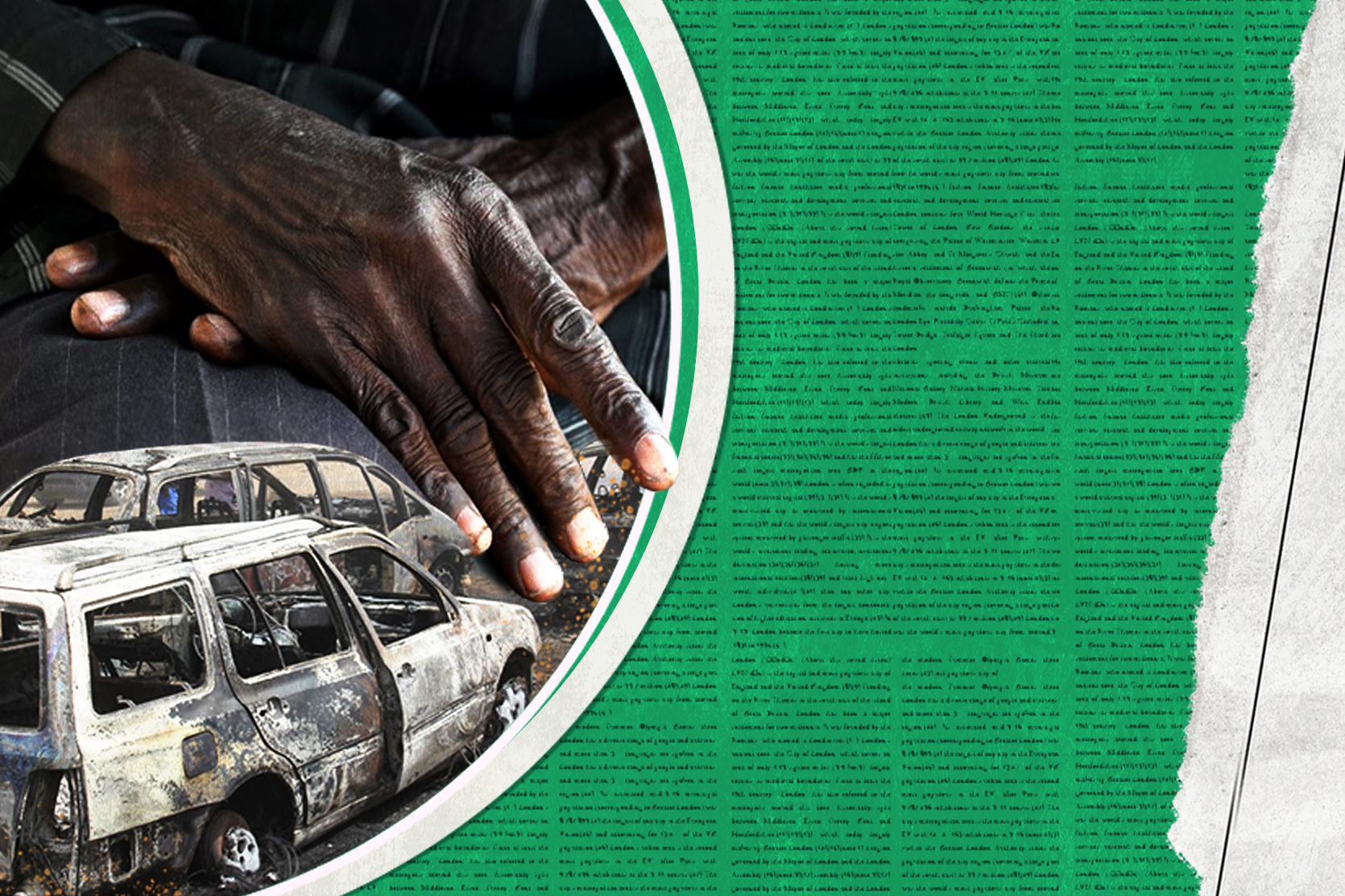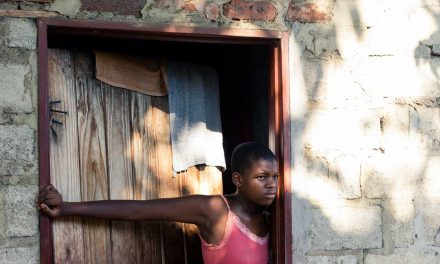
Traditional security thinking places the State as the primary entity which needs to be protected from external military threats. Territorial integrity is considered a fundamental value and any threats to it endanger national sovereignty. Security is seen as a zero-sum game, and the more a state invests in military capability, the more it guarantees its security.
As argued by Peoples and Williams (2015), this state-centric approach still largely determines how governments consider and practise security despite being wholly ill-suited to the modern challenges facing the well-being and survival of peoples and states today. These challenges are internal and transnational in nature, and include things such as disease epidemics, food scarcity, climate change and environmental degradation, disruptive 4IR technologies, mass illegal migration, and transnational crime.
As shown in Good Governance Africa’s (GGAs) Wicked Conversation blog series on the COVID-19 pandemic, in times of unique crisis and social unrest, as we are experiencing today, governments too often place their survival first, narrowing the security agenda, instead of widening it and building human security which centres the citizen.
This state-centric approach still largely determines how governments consider and practise security despite being wholly ill-suited to the modern challenges facing the well-being and survival of peoples and states today.
The same has been true in how states routinely react to the threat posed by violent extremism organisations (VEOs) and other non-state armed groups (NSAGs). Rather than appreciating that violent extremism is the product of deeper and more complex social and economic problems, as well as both international and transnational in nature, VEOs are treated as traditional security threats which can be defeated by overwhelming military force.
Over the last two decades, several major military interventions have sought to stem the spread of groups such as al Qaeda, the Islamic State (IS) and their affiliates, while an extensive web of conventions, laws, and institutions have proliferated to try and deny terrorist actors the ability to mobilize, finance, travel, communicate, and recruit. The estimated costs of the United States’ counterterrorism efforts alone since the al Qaeda-led attacks on 9/11 is around $6.4 trillion USD. While these interventions have had limited successes in certain contexts, overall they have failed to halt the spread of violent extremism and associated acts of terrorism either globally or in Africa primarily because they have sought to address the symptom and not the underlying problem.
In times of unique crisis and social unrest, as we are experiencing today, governments too often place their survival first.
Mozambique is a recent example. In response to a growing civil conflict in the country’s northern Cabo Delgado province over the last three years, the government attempted to overwhelm the militants with force, jailed journalists, closed civil society spaces, and made it difficult for humanitarian workers to access communities most in need of food and medical support. The effect has been an almost complete closure of space for citizens to air their grievances in a non-violent manner, increased poverty and fragility, and a consequent surge in recruitment and deepening of the insurgency.
In August 2020, GGA published the third instalment of Extremisms in Africa, an anthology collection of 44 chapters with contributions from a variety of leading experts in their respective fields on understanding and addressing violent extremism and other non-state armed groups on the continent.
What became clear to us is that VEOs are just one set of actors among many which collectively determine the life cycle of a given conflict. They usually emerge and/or spread in regions where they are able to exploit extant political, social, and economic grievances which have already frayed the social contract, and where poor or absent governance, corruption, and access to illicit arms and financial flows allow them to operate with relative ease.
They usually emerge and/or spread in regions where they are able to exploit extant political, social, and economic grievances which have already frayed the social contract, and where poor or absent governance, corruption, and access to illicit arms and financial flows allow them to operate with relative ease.
In this respect, a single-minded focus on traditional counter-terrorism strategies is not a sustainable solution to The security agenda needs to be widened to take into account the many sources of insecurity facing communities in Africa today and consider aspects such as rule of law, human rights, and economic access.
There is often a resistance by states to thinking about terrorism in these terms because it forces governments to consider their own failings and responsibility for creating the conditions under which violent extremism thrives. As Galtung (1996) and many others have argued, states can act as primary sources of structural violence by imposing restrictions on civilians which oppress their human, political, and social rights in order to safeguard the state system.
A shift from state- and military-centric notions of security to a greater emphasis on human security is contingent on good governance, and in particular, good civil-military relations. These factors are both under threat today in the context of declining democracy on the continent. The overthrow of deeply unpopular President Ibrahim Boubacar Keita by Malian soldiers in August seems to be part of a recent increase in coups which have at first been met with popular public support but quickly slide into unstable military dictatorships.
States can act as primary sources of structural violence by imposing restrictions on civilians which oppress their human, political, and social rights in order to safeguard the state system.
For military regimes, conflict resolution carries little inherent value and conflicts within their region are often considered purely in terms of how they might advance or hurt their interests, or how they could promote or undermine those of their rivals. This is antithetical to the type of regional cooperation needed to address modern transnational security challenges, and is deeply undermining the ability of our regional bodies to advance peace and security.
Over the course of the next eight weeks, GGA will be publishing a weekly blog series using this “wicked problem” lens highlighting chapters from the Extremisms in Africa anthology which speak to the complexity of preventing and countering violent extremism and offer solutions at the nexus of development, humanitarian action, and security.
A “wicked problem” is defined by Williams and Van ‘t Hof (2014) as a problem which has “multiple stakeholders involved in complex and unpredictable interactions.” This systems thinking perspective should encourage the reader to not only focus on the actions and motivations of the individual stakeholder (in this case the violent extremist actor) but the root causes of vulnerability, the linkages between multiple stakeholders within a conflict system at the local, national, and regional level, and how these constituent elements comprise the whole of the system.
A “wicked problem” is defined by Williams and Van ‘t Hof (2014) as a problem which has “multiple stakeholders involved in complex and unpredictable interactions.”
Chapters featured will include:
– Hybridity and Fragmentation: Implications for Regional Security Policy in the Sahel and Beyond – Bethany L. Mcgann
– The Global Health Threat to Human Security: How Pandemics May Set the Scene for Bioterrorism – Craig Moffat
– The Potential Impact of Artificial Intelligence on Human and National Security in Africa – Futhi Luthango
– Using Evidence-Based Research to Directly Improve P/CVE Programming: A Case Study of a Social Network Analysis in Somalia – Fatma Ahmed, Laura Nettleton & Jem Thomas
– The Libya Crisis and the Need for African Ownership of Peace and Security Processes on the Continent – Lebogang Seshoka
– Neocolonial/Colonial Extremes: Defining Direct Colonialism, Reaction and Resistance in Contemporary Ambazonia and Western Sahara- Matt Meyer
– Fulani and Jihad: The Argument Against Simplistic Narratives in West Africa – Madeline Vellturo
– The Escalation of Extremist Violence in Southern Africa and the Need for More Collaborative Security Responses – Stephen Buchanan-Clarke
We’d love to hear from you! Join The Wicked Conversation by leaving your comments below, or send your letter to the editor to stephen@gga.org.
To get your copy of Extremisms: Volume 3, click on your preferred link below:
Loot: https://tinyurl.com/yyzvaxmu
Takealot: https://tinyurl.com/yxqdm7by
Amazon Kindle: https://tinyurl.com/y3zgz55f
Amazon Print edition: https://tinyurl.com/y3gw5xxo
STEPHEN BUCHANAN-CLARKE is an independent analyst with several years’ experience working in conflict and post-conflict settings in Africa on national security and development issues. He currently serves as Head of Programme for Good Governance Africa’s Human Security & Climate Change Programme, and has been involved in the editing of all three volumes of the Extremisms in Africa series, as well as authoring several chapters.
Stephen Buchanan-Clarke is a security analyst with several years' experience working in both conflict and post-conflict settings in Africa, primarily on issues of peace and security; transitional justice and reconciliation; democratisation and governance; and preventing and countering violent extremism. He currently serves as head of the Human Security and Climate Change (HSCC) project at Good Governance Africa and is a co-editor of the Extremisms in Africa anthology series.














The gga wicked conversation blog discussion emphasizing the need for broadening the conception of security from it state centric to a human centric prism is really interesting , urgent and important.
Hi Osman,
Thank you for your support and positive response. Kindly keep an eye on our page for more*